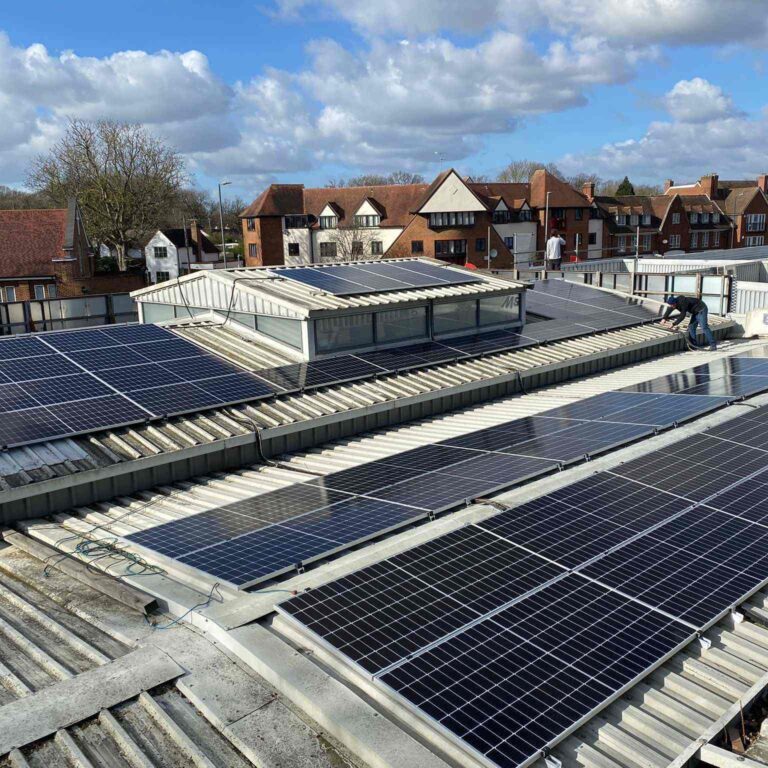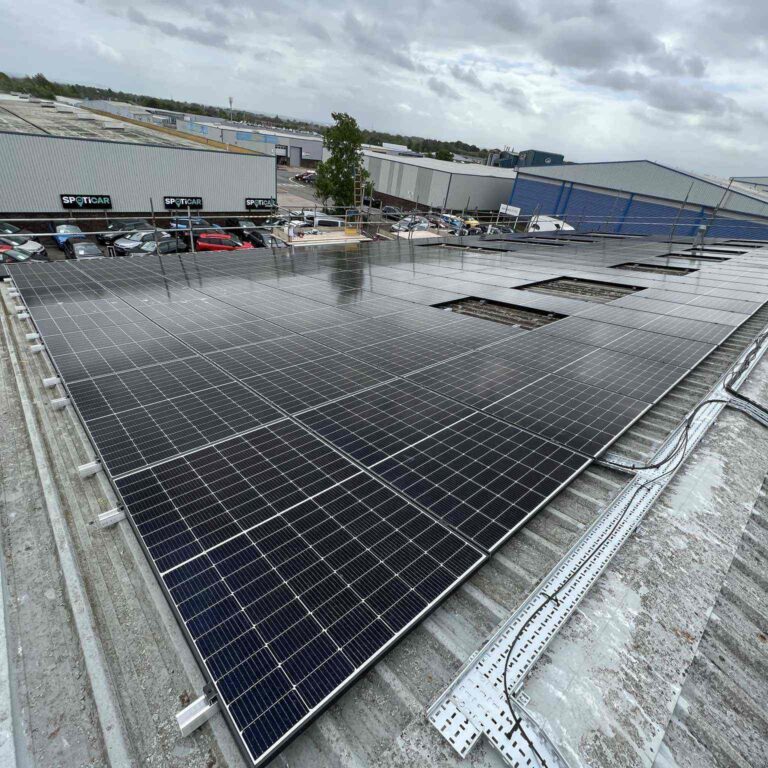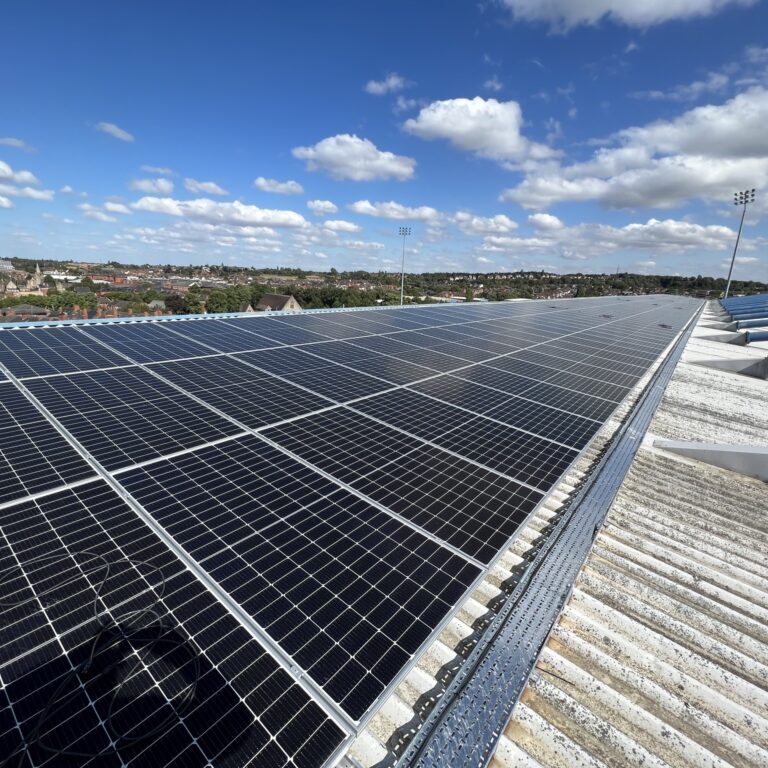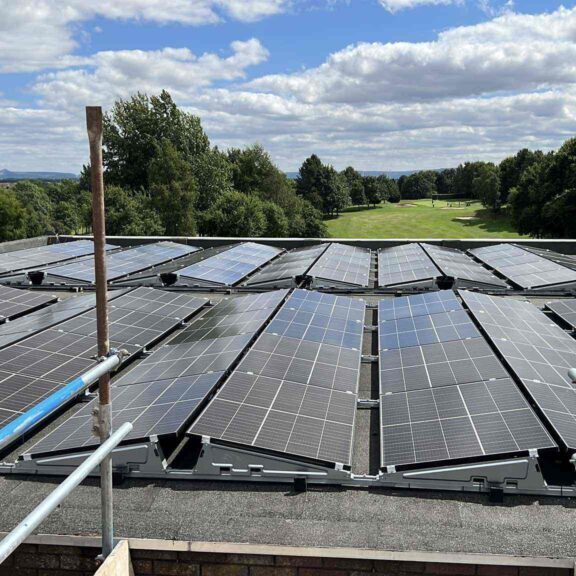As businesses across the UK increasingly embrace renewable energy, commercial solar projects have proven to be a powerful tool for reducing operational costs and enhancing sustainability. By showcasing successful commercial solar projects in the UK, this article will provide real-world examples of how businesses in various sectors and regions have benefited from transitioning to solar energy. These case studies demonstrate the practical and financial advantages that solar power can offer, making a compelling case for businesses considering their own commercial solar projects.
The Growing Demand for Commercial Solar Projects in the UK
The demand for commercial solar projects in the UK has been steadily increasing, driven by the dual need to reduce energy costs and meet corporate sustainability goals. As energy prices continue to rise, more businesses are exploring renewable energy solutions to cut expenses and reduce their carbon footprint. Commercial solar projects not only offer significant savings on energy bills but also provide businesses with a tangible way to contribute to environmental sustainability.
This article will delve into several successful commercial solar projects in the UK, highlighting the benefits these businesses have experienced. By understanding the outcomes of these projects, other businesses can gain insights into how commercial solar energy can work for them.
Case Study 1: Supermarket Chain Reduces Energy Costs by 30% with Solar Power
One of the most successful commercial solar projects in the UK involved a well-known supermarket chain that decided to invest in solar energy across its multiple locations. Faced with rising energy costs and a desire to enhance its green credentials, the company installed solar panels on the rooftops of its distribution centers and selected stores.
Project Overview:
- Location: Multiple sites across the UK
- System Size: 5 MW (megawatts) combined capacity
- Project Type: Direct purchase
- Duration: 6 months
Outcomes:
The supermarket chain saw immediate benefits from its investment in solar power. The solar panels generated enough electricity to cover 30% of the energy needs at each site, leading to a significant reduction in energy bills. Over the first year, the company reported savings of £500,000, with the system expected to pay for itself within five years. In addition to cost savings, the project helped the company reduce its carbon emissions by 2,500 tonnes annually, reinforcing its commitment to sustainability.
This case study illustrates the substantial financial and environmental benefits that commercial solar projects can deliver for large-scale businesses in the retail sector.
Case Study 2: Manufacturing Facility Achieves Energy Independence with Solar
A medium-sized manufacturing company in the Midlands sought to reduce its reliance on the grid and secure a more stable energy supply. The company decided to invest in a commercial solar project that would allow it to generate its own electricity on-site, ensuring greater energy independence and cost predictability.
Project Overview:
- Location: Midlands, UK
- System Size: 1 MW
- Project Type: Power Purchase Agreement (PPA)
- Duration: 4 months
Outcomes:
By entering into a power purchase agreement, the manufacturing facility was able to install solar panels on its roof without any upfront capital investment. The PPA allowed the company to purchase the electricity generated by the solar panels at a fixed rate, which was 20% lower than the market rate for grid electricity. This arrangement not only provided immediate cost savings but also protected the company from future energy price volatility.
The solar energy system now supplies 60% of the facility’s energy needs, significantly reducing its dependency on the grid. The project has also positioned the company as an industry leader in sustainability, enhancing its reputation among clients and stakeholders.
This case study highlights the advantages of PPAs for businesses that want to benefit from solar energy without the burden of upfront costs, particularly in the manufacturing sector.
Case Study 3: Office Complex Enhances Sustainability with Solar PV Installation
A commercial office complex in London aimed to enhance its sustainability profile and attract environmentally conscious tenants. The property management company decided to install a solar photovoltaic (PV) system as part of a broader strategy to reduce the building’s carbon footprint and operating costs.
Project Overview:
- Location: London, UK
- System Size: 500 kW (kilowatts)
- Project Type: Solar lease
- Duration: 3 months
Outcomes:
The solar PV system was installed under a solar lease agreement, which allowed the property management company to benefit from the solar energy system without purchasing it outright. The lease payments were structured to be lower than the building’s previous energy costs, resulting in immediate savings.
The installation of the solar PV system reduced the building’s electricity consumption from the grid by 40%, significantly lowering operating costs. The project also contributed to the complex’s green building certification, making it more attractive to potential tenants who prioritize sustainability. As a result, the complex experienced higher occupancy rates and was able to charge a premium for its eco-friendly features.
This case study demonstrates how commercial solar projects can enhance the value and marketability of office properties, particularly in competitive urban areas like London.
Case Study 4: Agricultural Business Boosts Profitability with Solar Energy
An agricultural business in Yorkshire, specializing in dairy farming, recognized the potential of solar energy to reduce its high energy costs. The business decided to install a commercial solar energy system to power its milking machines, refrigeration units, and other energy-intensive equipment.
Project Overview:
- Location: Yorkshire, UK
- System Size: 250 kW
- Project Type: Direct purchase
- Duration: 2 months
Outcomes:
The installation of the solar energy system allowed the agricultural business to generate 80% of its electricity needs on-site, resulting in substantial energy cost savings. The system also enabled the farm to become more resilient to energy price fluctuations, providing greater financial stability.
The investment in solar energy not only improved the farm’s profitability but also enhanced its environmental credentials, which helped in marketing its products as sustainably produced. The project has since become a model for other agricultural businesses in the region, showcasing the viability of solar energy in the agricultural sector.
This case study underscores the financial and environmental benefits of commercial solar projects for agricultural businesses, particularly those with high energy demands.
Key Takeaways from Successful Commercial Solar Projects in the UK
These case studies demonstrate the wide-ranging benefits that commercial solar projects can offer to businesses across various sectors in the UK. Whether through direct purchase, PPAs, or solar leases, companies can achieve significant cost savings, reduce their carbon footprint, and enhance their sustainability profile.
When considering a commercial solar project, businesses should evaluate the specific energy needs, financial goals, and long-term plans to choose the most suitable contract type. Additionally, partnering with a reputable commercial solar installer is essential to ensure the project’s success and maximize the return on investment.
Conclusion: The Future of Commercial Solar in the UK
As the UK continues to transition towards a more sustainable energy future, commercial solar projects will play a crucial role in helping businesses reduce costs and meet their sustainability targets. The successful case studies highlighted in this article serve as powerful examples of how solar energy can be effectively integrated into various business operations, delivering both financial and environmental benefits.
For UK companies looking to invest in commercial solar energy, these real-world examples offer valuable insights and inspiration. By understanding the potential outcomes and aligning their energy strategies with best practices, businesses can position themselves for long-term success in the evolving energy landscape.



